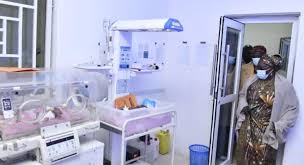By Milcah Tanimu
Kaduna State Governor, Uba Sani, has drawn attention to the devastating toll of high neonatal mortality rates in Nigeria, revealing that an estimated 700 newborn babies die every day in the country. This sobering statistic underscores the urgent need for action to address the pressing issue of maternal and child health.
Speaking at the commissioning of a new Pressure Swing Adsorption (PSA) oxygen plant and Neonatal Unit at Yusuf Dantsoho Memorial Hospital, Governor Sani emphasized the gravity of the situation, particularly in Kaduna State, which reportedly has the highest neonatal mortality rate in North West Nigeria.
The governor, represented by his deputy, Dr. Hadiza Balarabe, highlighted the staggering statistics, noting that 25% of all neonatal deaths occur within the first day of life, with 75% occurring within the first week. These alarming figures underscore the critical need for interventions to improve neonatal care and reduce mortality rates among newborns.
The newly commissioned neonatal unit is poised to play a pivotal role in addressing this crisis by providing essential services for newborns aged 0-28 days, aimed at sustaining the lives of both infants and their mothers. Furthermore, the construction of the oxygen plant ensures a reliable oxygen supply to the neonatal unit and other healthcare facilities in the state, bolstering efforts to enhance healthcare delivery.
Governor Sani expressed gratitude for the technical and financial support from the United Nations Children’s Fund (UNICEF), which contributed to the realization of these vital healthcare projects. However, he underscored the need for sustained efforts and collaborative action to tackle the root causes of neonatal mortality and ensure the well-being of mothers and infants across the state and the nation as a whole.
The governor’s remarks serve as a clarion call for increased investment and prioritization of maternal and child health initiatives, with the aim of significantly reducing neonatal mortality rates and improving healthcare outcomes for vulnerable populations.

